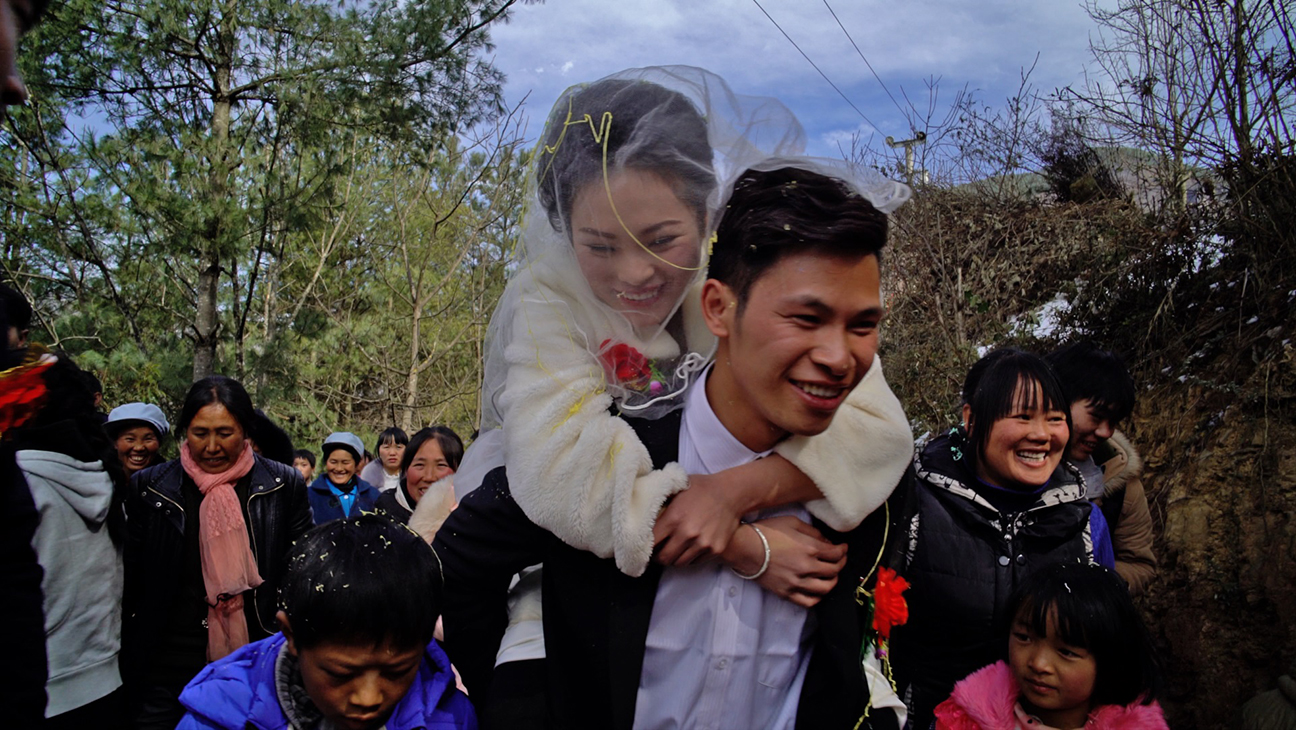
August documentarian Wang Bing (West of the Tracks) concludes his Youth trilogy about garment workers with Youth (Homecoming), a work much like its predecessors in that it’s simultaneously deeply fascinating and profoundly soporific. This last chapter spends less time in the Eastern industrial zone of Zhili, Zhejiang Province, China, where the many of the subjects Wang has been following since Youth (Spring) spend long hours and most of their year plying their trade.
Instead, as the title might suggest, Homecoming, which premiered in competition at Venice, follows several workers on their journeys home for the New Year, to places as far-flung as Yunnan, on the other side of the country, or Anhui, a province next door to Zhejiang. Viewers who have been keeping up with the series from the beginning may feel rewarded by the staggering mountain landscapes and other open spaces here, a respite after all those hours watching garment assembly in gnarly, cluttered workshops.
Related Stories
Youth (Homecoming)
Director: Wang Bing
2 hours 32 minutes
Given the trilogy was shot over five years, starting in 2014 and finishing in March 2019, you’d expect the film to be structured in straight chronological order. Wang, however, resists that route and jumps about in time. At one moment we’re watching Shi Wei back in 2016, using a kind of jigsaw to block-cut multiple pattern pieces and sprawling across bales of cut pieces to take a phone call. Suddenly, we’re years ahead watching him carry his wife, Liang Tien Liang, on piggyback down a winding mountain track to get married as the residents of their respective villages trail behind them, laughing and teasing all the way. Usually seen in ordinary street clothes, the couple are nearly unrecognizable in their formal bridal wear.
Clothes quietly say a lot about the individuals we follow here, which is perhaps not surprising given they spend 15 to 18 hours every day making the stuff, albeit mostly children’s apparel for the domestic Chinese market. The earlier movies explained indirectly that these young people are often in their teens when they leave their provincial homes to make their way to Zhili so they can earn enough to support their families back home.
Even though they’re giving the bulk of their wages to their families, as breadwinners, their fancier outfits (often sporting prominent designer labels) distinguish them when they’re back among the country mice in their drabber duds. One young woman slogs her way through the mud on foot for the last few kilometers to get home while clad in a fetching jacket trimmed with little puffs of lilac fur. But once they’re all home, it’s as if their parents and grandparents have nothing but a litany of woe to share — stories about village disputes over stolen bricks, onerous debts and failing health, the threnody of despair and guilt-tripping anyone who’s ever moved away knows too well.
But it’s not as if life in Zhili is all gold-paved streets and endless fun. Admittedly, we did see these youths flirting, laughing, slacking off at work in Spring. But as the title hints, things got rougher in the second film, Hard Times, with civil unrest and employers shorting their contract workers. Here we see how hard it can be to get established for new arrivals in Zhili, who spend their first few days trudging from anonymous workshop to workshop looking for piecework and a place to stay. One couple is lucky to get a room of their own instead of dormitory shared with half a dozen others. Wang and his camerapeople trudge behind them patiently as they traverse Zhili, or up the side of mountains, or the fields of Anhui where some go to set off firecrackers and take part in local customs. It’s pedestrian cinema in the most literal sense.
The long, unbroken rhythm of Wang’s filmmaking somehow casts a spell, and he certainly has a good eye for characters. That’s a blessing considering how slow and considered the takes are here, watching with equally intense absorption whether the subjects are sleeping on a train or constructing seams or making food. But overall, the lack of differentiation can be wearisome. It’s a shame that he stopped shooting in 2019, not long before the COVID pandemic would completely reshape that industry, forcing many of the people we meet in the trilogy to go home to their families. Surely that would be a fertile field for documentary drama.
Full credits
Production companies: House on Fire, Gladys Glover, CS Production, Arte France Cinéma, Les Films Fauves, Volya Films, Eastern-Lion and Culture Media Co., Beijing Contemporary Art Foundation, Le Fresnoy – Studio national des arts contemporains
Director: Wang Bing
Producers: Sonia Buchman, Mao Hui, Nicolas R. de la Mothe, Vincent Wang
Executive producer: Wang Yang
Co-producers: Gilles Chanial, Denis Vaslin, Fleur Knopperts, Wang Jia, Qiao Cui
Directors of photography: Liu Xianhui, Song Yang, Ding Bihan, Shan Xiaohui, Maeda Yoshitaka, Wang Bing
Editors: Dominique Auvray, Xu Bingyuan
Sound: Ranko Paukovic
Sales: Pyramide International
2 hours 32 minutes
THR Newsletters
Sign up for THR news straight to your inbox every day







